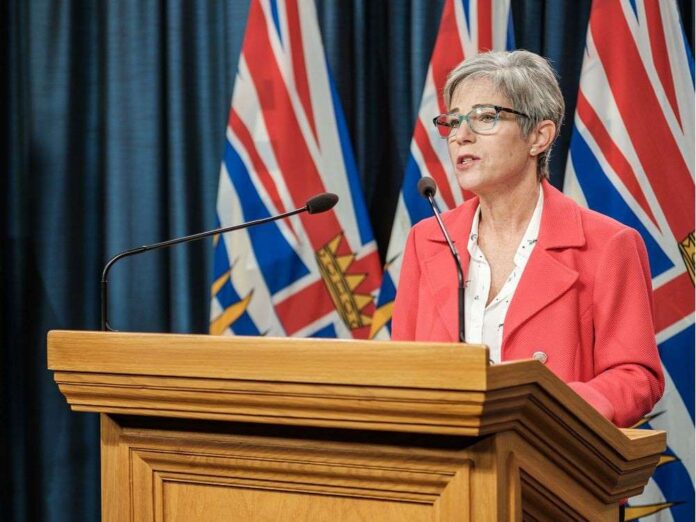
VICTORIA — British Columbians who lost their jobs in the last nine months due to COVID-19 may not qualify for the province’s new $1,000, tax-free, COVID-19 recovery benefit because eligibility will be based on their income from 2019 — before the pandemic even started.
Critics attacked the rollout Tuesday of what had been a marquee election promise from the B.C. NDP, saying it falls well short of the stated goal to give a financial boost to those who need it most before Christmas.
“There’s going to be people who genuinely need it now … that are not going to qualify based on the criteria the government has made up at the last minute,” said Opposition Liberal critic Mike Bernier. “This is completely inappropriate.”
Finance Minister Selina Robinson found herself on the defensive while unveiling the details of the benefit, saying it was the best the government could come up with to get money out the door by the end of 2020.
“If we were to wait for the 2020 tax returns, people wouldn’t get a benefit until much later,” said Robinson. “And people need help now. This is the best tool we have.”
British Columbians can begin applying for the recovery benefit by Dec. 18, and if they do so quickly they might get the cash before Christmas, said Robinson. The government said it hopes for a five-day turnaround.
The $1,000 benefit is based on a sliding scale of household family income, with the full amount for those households with lower than $125,000, and a decreasing amount up to a cutoff point of $175,000. Single people with incomes lower than $62,500 could get $500, with a similar sliding scale up to a cutoff of $87,500.
However, when applying for the benefit, British Columbians will be asked to submit the income level they recorded in their 2019 taxes. The COVID-19 pandemic began shuttering businesses in March 2020. Even if a person is unemployed now, the 2019 amount is what government will use to determine a benefit payment.
Small businesses, which were hoping to see some revenue flow to them due to increased spending generated by the $1,000 payments, also think the program is flawed.
“The intent to get money into the pockets of British Columbians to help stimulate the economy, spend it at local businesses and recirculate that money — great intention,” said Muriel Protzer, senior policy analyst at the Canadian Federation of Independent Business. “It sounds like a big issue here is it’s not targeted support, and those who need help the most won’t necessarily get the help that they need.
“This is a lot of money being set aside for this program … The CFIB’s stance is that money could be much better targeted to people who need help the most now.”
The COVID-19 benefit will cost as much as $1.7 billion, which is up from an estimate of $1.4 billion during the election.
Part of the increase is because government is widening the eligibility to include people in income assistance and disability, said Robinson. More than 3.7 million people should receive some money through the benefit program, she said. The government estimates that will encompass 90 per cent of B.C. adults.
“This will give people some breathing room and peace of mind,” said Robinson. “A bit more to spend on groceries, on coats, on boots for their growing kids and special gifts to lift our spirits.”
People can fill out an online form for eligibility after Dec. 18 or wait until a government call centre opens Dec. 21, at 1-833-882-0020.
Also Tuesday, Robinson announced an additional $150 monthly supplement between January and March 2021 for people on income assistance, disability or low-income seniors. That will replace a $300 monthly COVID-19 crisis supplement, which expires this month.
Source: VANCOUVER SUN
